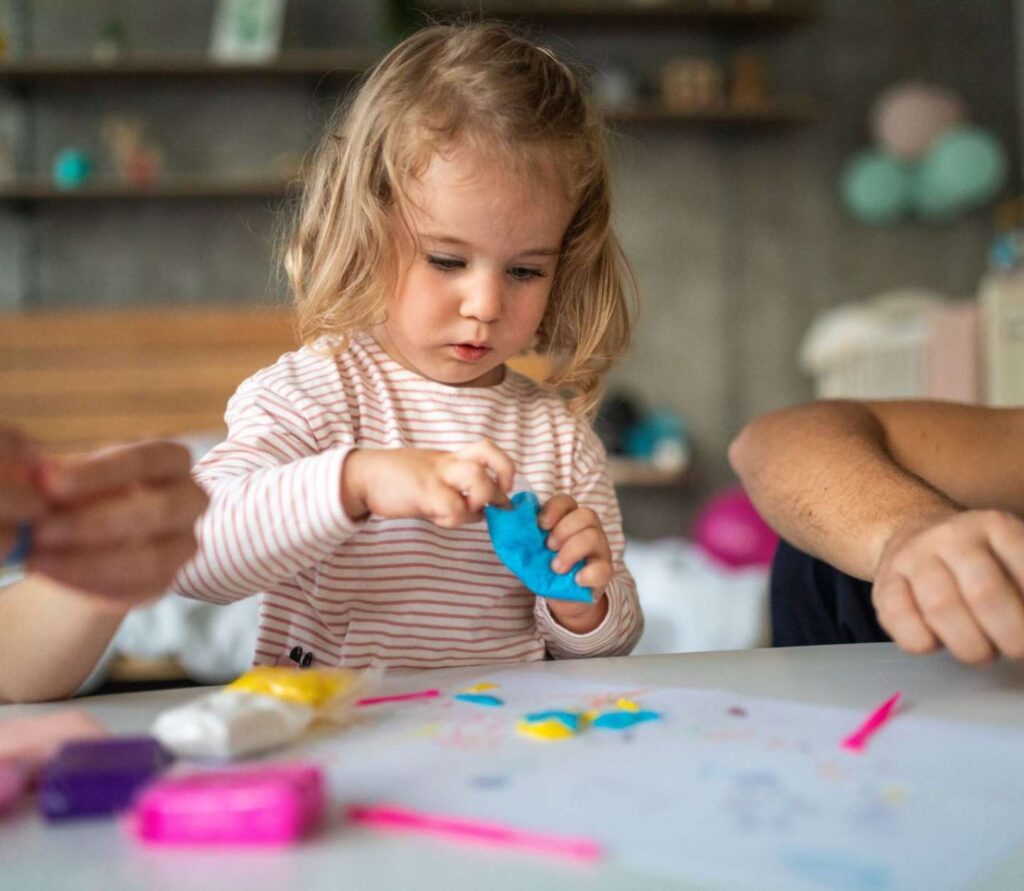
Therapy for autism in children
An early autism diagnosis mean you can start the therapy that will help give your child the best possible start in life.
Enquire Now Start Your BookingTherapies for children with autism aim to reduce behaviours that affect day to day activities and can impact a child’s quality of life.
Autism is a neurological difference that is lifelong and presents in lots of different ways. Some people with autism have difficulty interacting and communicating with others, have narrow interests, show repetitive behaviours and show other signs like being sensitive to taste, touch, light and sounds.
No two people with autism are the same, and there a broad spectrum of needs. This means that each person’s therapy and approach will be unique to their specific needs and goals.
Working together with the family and being involved in all approaches is a big part of any autism support. This can happen in schools, our premises, community centres and home, and usually it’s in a combination of all of these.
If you have recently received an autism diagnosis or have concerns about your child’s development, Early Start Australia offer assessments and a range of evidence-based early intervention therapies to support children with autism.
To learn more about therapy for autism in children or to book an appointment contact your nearest Early Start Australia clinic.

Types of therapies and support available for children with autism
Every child with autism has different needs, and any therapy will be an individualised approach to address them.
There are evidence-based pathways in early intervention, such as ABA or ESDM.
And common approaches that help are psychology, occupational therapy, speech pathology and behaviour therapists.
There are many different approaches for the treatment of autism spectrum disorder (ASD), but there are a few general categories, and chances are your child will receive a combination.
Behavioural
Behavioural approaches focus on changing behaviours by understanding what happens before and after the behaviour.
Developmental
Developmental approaches focus on improving specific developmental skills, such as language skills or physical skills.
Educational
Educational treatments are given in a classroom setting, with teachers adjusting the classroom structure to improve academic and other outcomes.
Social-relational
Social-relational treatments focus on improving social skills and social interaction, and building emotional bonds and can involve parents or peer mentors.
Pharmacological
Some medications treat symptoms that can help people function better.
For example, to manage high energy levels, inability to focus, or self-harming behaviour, as well as co-occurring psychological conditions, such as anxiety or depression.
Psychological
Psychological approaches can help people with ASD cope with anxiety, depression, and other mental health issues.
For example, cognitive-behaviour therapy (CBT) can change how the person thinks about a situation to change how they react to it.
Complementary and alternative
Some treatments are used to supplement more traditional approaches, such as special diets, herbal supplements, chiropractic care, animal therapy, art therapy, mindfulness, or relaxation therapies.
Autism FAQs
Find a clinic near you
We have clinics in every state and territory providing assessments, early childhood intervention therapies, and support to help you thrive.
Find a clinicThe Early Start Australia promise

Holistic care and treatment plans
Our multi-disciplinary team works together with you to understand your child’s needs. From there, we’ll develop a plan with evidence-based strategies. Work with us to achieve your goals and enjoy a better quality of life.

Australia-wide reach
With clinics in every state and territory, and an experienced team of therapists. Find help when you need it, where you need it.

Registered NDIS provider
We are a registered NDIS provider and are here to help you on your NDIS journey. We provide quality and safe services, follow NDIS requirements, and support your needs and goals.

Early intervention at all stages
Early intervention is not just for young children. We offer therapies that cater to all ages, needs and abilities, and we know the sooner you start your therapy journey, the better your outcomes. With us, you can learn new skills and enjoy more freedom and control in your life.



